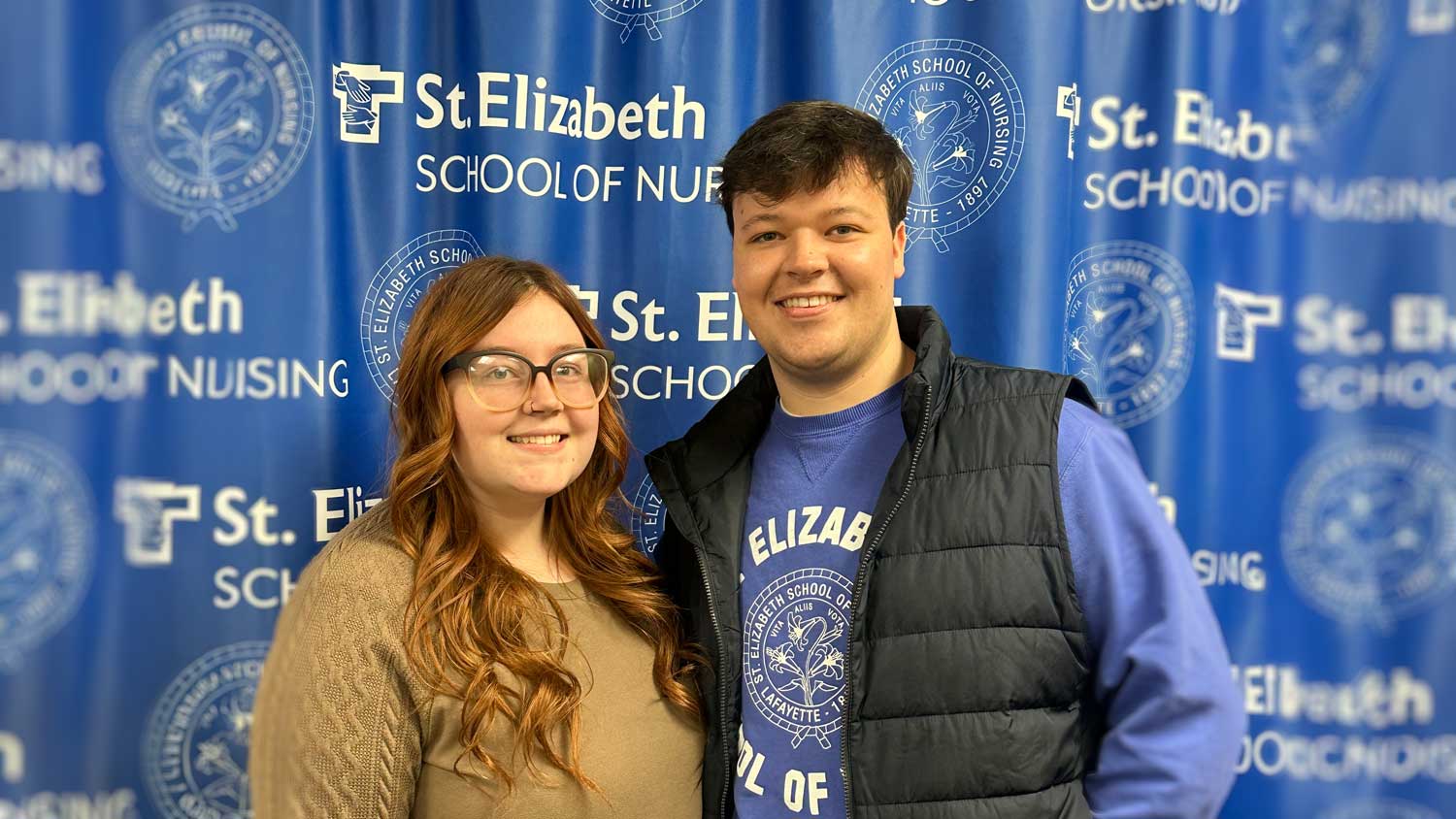The National Council of State Boards of Nursing (NCSBN) is rolling out the Next Generation NCLEX (NGN) exam. The new format will include question types framed to better measure novice nurses’ clinical judgment. These changes for recent graduates to secure licensure allow them to prove their readiness to provide only the best in patient care.
Although this shift in licensure feels both thrilling and stressful to those impacted, the NGN will critically evaluate the problem-solving proficiency graduates gained. Today’s frontline health care challenges require nurses to have a quiver filled with clinical knowledge and hands-on experience when entering the workforce. The confidence to assess and analyze cases depends upon their familiarity and comfort levels to provide treatment. The new format ensures nurses are competently entering the field trained for success.
The reasoning behind the NCLEX changes stems from NCSBN research concerning new RNs. Their findings showed that clinical judgment is linked to forty-six percent of all entry-level nurse tasks. Yet, more recent studies reported that novice nurses lack crucial clinical decision-making abilities. Only one-fifth of employers claim satisfaction with new nurses’ decision-making skills, and medical errors are the third leading cause of death in the United States. These findings and statistics created the need for an evolved assessment that systematically walks nursing school graduates through what genuine patient care resembles.
Test Development Details
According to the Assessment Technologies Institute Educator Blog, the team working on the new iteration of the NCLEX is currently utilizing eight evidence-based steps to develop the systematic evaluation:
- Develop the Clinical Judgment Measurement Model, which includes five areas of layered content that work together to simulate the process of clinical judgment and decision making.
- Create a system of multi-response questions with differentiated ways to score answers, including a deduction of points for lack of proving clinical judgment.
- A team of educators, nurses and students will review the test in its initial stages to offer feedback concerning usability and representation of patient scenarios nurses face.
- Create the technology needed to support the new exam structure.
- In the current NCLEX form, the NCSBN has added a “Special Research Section” for test-takers to voluntarily answer data-collection questions that will help inform the test construction team with no impact on students’ scores.
- The research measurement arm consists of the ongoing intake and analysis of data provided by NCLEX Special Research Section results by gaining knowledge from answers received.
- Alpha/Beta tests to evaluate and compare test questions for accuracy.
- The Next Generation NCLEX—NGN—launches.
The Format
The NGN configuration will be the first of its kind in the exam’s history. The question types will be structured to work together, presenting an entire picture of nursing fluency, triage and treatment. Candidates will demonstrate the ability to observe and assess patients, identify and prioritize concerns, then generate the best possible patient-care solutions.
NGN question-types will include:
- Extended drag and drop – Candidates pair items that pertain to patient scenarios and next steps
- Cloze (dropdown) – A narrative case study is presented, then candidates are asked to choose up to six responses that represent proper care
- Enhanced hot spot – A patient scenario and data are presented with specific sections highlighted to answer questions
- Matrix – Judgments concerning a scenario and patient data are selected by checking appropriate boxes that align with proper treatment

The Preparation
St. Elizabeth School of Nursing has proudly led the higher education pack in holistic, hands-on classroom learning. This precedent has enabled generations of graduates to enter hospital hallways, physician offices and research settings ready to serve. To prepare for the NGN changes ahead, the Franciscan Health Foundation Circle of 1875 donated new technology—Body Interact—that teaches, trains and assesses student work via virtual patients to enhance clinical reasoning. This enhances experiential learning by featuring patients from infant to senior with varied case difficulty levels while providing instant feedback within a wide range of medical specialties.
Internally, St. Elizabeth School of Nursing educators are familiarizing themselves with the new exam format and asking themselves how to best implement forecasted changes throughout their curriculum. Three assistant professors have been tasked with ensuring the school’s program meets the new testing format: Department Chair of Adult Practice Andrea Blissitt, PhD, RN, CNE; Kathleen Murtaugh, MSN, RN, CNA and Lyndsey Brooks, MSN, RN-BC.

“This software enhances the medical manikin interactive scenarios by adding a layer of realism that is easily adaptable into our curriculum—it complements what we already do so well.”
“Organizing and prioritizing patient data can be overwhelming for new nurses,” Blissitt shares. “Today’s patients can have comorbidity combinations which lead to chronic illnesses and complex health issues. New nurses need to prioritize care for sick patients safely by sorting through critical information quickly, identifying the problem, then providing care.” Blissitt views the Body Interact virtual assessments pairing well with the school’s state-of-the-art SIM Lab. “This software enhances the medical manikin interactive scenarios by adding a layer of realism that is easily adaptable into our curriculum—it complements what we already do so well.”
St. Elizabeth School of Nursing students are not passive learners. It’s one of the many traits that has drawn prospective enrollees for decades and kept alumni singing the school’s praises. “St. Elizabeth does an amazing job of encompassing every aspect of solving real-life patient scenarios,” Murtaugh observes. For staff integrating NGN-based learning modules into their courses, she is a support resource for integrating and updating course subjects. “Our staff is attending workshops to learn how to incorporate Next Gen NCLEX-style questions into exams at all levels of coursework to introduce students to the format early on,” she notes. There’s a broader reason Murtaugh finds value in the update and accountability for nursing schools: “There are a variety of programs out there educating nurses, and not all students are as prepared as St. Elizabeth’s. This NCLEX update changes that across the board.”
From vital signs to lab work, properly sorting through patient medical information dictates treatment decisions. Running through client data in a determined, thoughtful manner is nothing new in St. Elizabeth’s classrooms and clinicals. “Our instructors—our program—is holistic-based,” Brooks says. “We provide our students with a large number of clinical hours and varied experiences. The NGN will allow our graduates to showcase what they know so well because it’s fashioned in the manner students have learned to become nurses at St. Elizabeth.”
As seen in the The Lamp fall 2021 issue
















